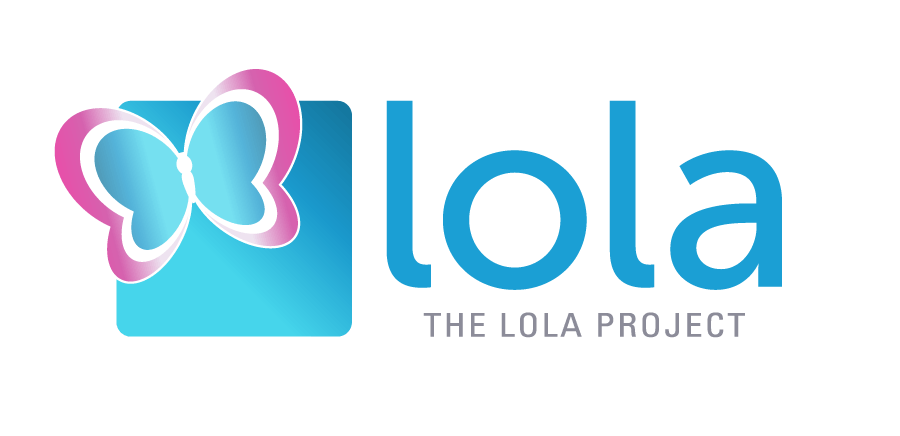We at LOLA know from our own experience that the care bereaved parents get from maternity and related services has a profound effect and is extremely important.
The importance of Health Professionals to bereaved parents
Good care and support from the professionals around parents can make them feel able to cope much better with their loss. For us, the support of a kind and patient consultant, a supportive, specialist team of midwives and the help and direction of bereavement midwives made an enormously positive difference to our experience of losing Lola, and during our pregnancy with her younger sister, a year later. Without their care, concern and dedicated support, everything would have been much more difficult.
Conversely, bad care and a lack of understanding and support can add unmanageable weight to the burden of bereaved parents, making their experience much more painful. A memorable example for us was the health visitor who had been let down by her team and not informed about Lola’s death, and who excitedly congratulated us when we greeted her at the door - this was hard for us, but also really devastating for her, making a difficult visit harder than it needed to be for us all. We also experienced health professionals who used language like ‘is it just the one baby you’ve lost?’; language which appeared to dismiss Lola and our deep grief at her loss.
To support the many dedicated health professionals and to help you provide the best care possible for fragile parents and their families, we at LOLA encourage you to read the information on this site, including the Stories of those affected by baby loss and to go through the links for professionals, below.
For a comprehensive range of tools specifically aimed at helping health professionals to ensure that parents receive the best possible care after their baby has died can be downloaded here.
These are a range of blogs and parent voices – covering different ages and causes of baby and child death, and health professionals working with families who have experienced baby loss may find them helpful.
https://thinkingofoscar.com/blog/
https://amotherwithoutachild.com/
https://shoeboxfullofmemories.wordpress.com/resources/
https://shoeboxfullofmemories.wordpress.com/
https://grievewellblog.wordpress.com/
http://carlymarieprojectheal.com/healing/information-for-healthcare-professionals
Links to additional information you may find helpful
For a comprehensive range of tools specifically aimed at helping health professionals to ensure that parents receive the best possible care after their baby has died can be downloaded here.
You can also find an e-learning platform for health professionals specialising in bereavement midwifery and healthcare here.
You can also look at babylosscomfort.com for really helpful guidance on the grief that parents are experiencing, and may find their webpage 'What do I say?' along with this resource on the Sands website useful to help find the right words, when someone has lost a baby.
In addition, if you are a midwife, nurse or student who is involved in the care of parents whose baby has died, you can share ideas and guidance on good practice and procedures as well as get support where you may need it at an online network, which has been set up by the Royal College of Midwives, SANDS and Bliss. If you would like to apply to join the network, sign up here.
The National Bereavement Care Pathway (NBCP) is also being set up by a collection of charities and professional organisations who work with and support bereaved parents. The NBCP helps professionals to support families in their bereavement after any pregnancy or baby loss, be that Miscarriage, Termination of Pregnancy for Fetal Anomaly (ToPFA), Stillbirth, Neonatal Death or Sudden Unexpected Death in Infancy (SUDI). For more information and updates, visit http://www.nbcpathway.org.uk/
https://childbereavementuk.org/
Child Bereavement UK supports families and educates professionals when a baby or child of any age dies or is dying, or when a child is facing bereavement. The National helpline is for both families and professionals looking for support - Tel. 0800 02 888 40
http://childdeathhelpline.org.uk/home/4583966913
The Child Death Helpline aims to provide a quality freephone service to anyone affected by the death of a child of any age. Callers to the helpline might be parents, grandparents, siblings, other family members, friends or involved professionals. It is staffed by trained volunteers, all of whom are bereaved parents - Tel. 0800 282 986 or 0808 800 6019
https://www.sands.org.uk/professionals/networking-and-events/emotional-support-professionals
SANDS offer a helpline and care resources for health professionals supporting bereaved parents.
Support for Clinical Staff who are working with bereaved families may find the following links useful for their own support and wellbeing in their work.
Support Specific for Child Death:
CBUK welcomes calls from professionals who need support following the death of a child
http://stillbirthstories.org/themes/support-for-clinicians/
Staff discussing their feelings about stillbirths and baby death
General Support:
https://www.samaritans.org/ (Phone 116 123)
http://www.ouh.nhs.uk/education-centres/careers/documents/support-for-doctors.pdf
OUH document detailing support mechanisms for doctors in training
Medic support Unit; a confidential staff support service for doctors and dentists in training, offering psychotherapy and psychology in Oxford
Professional Support Unit; a career development and coaching service for doctors in the Thames Valley
https://www.facebook.com/groups/1215686978446877/
Tea & Empathy public Facebook group for peer to peer support for all health care professionals
Oxford Paediatrics Mentoring service
http://www.dsn.org.uk/support-for-doctors
The Doctors Support Network is a confidential peer support network for doctors and medical students with concerns about their mental health.
https://www.bma.org.uk/advice/work-life-support/your-wellbeing/sources-of-support
BMA Counselling (available 24/7) 0330 123 1245
(You do not need to be a BMA member to access BMA counselling)
http://www.abigailsfootsteps.co.uk/
A charity which aims to provide midwives and families with the empathy, training, support and care to help them cope with the pain of losing a stillborn child.
This report, on listening to parents after the death of their baby after birth or the stillbirth of their baby may also be useful.
